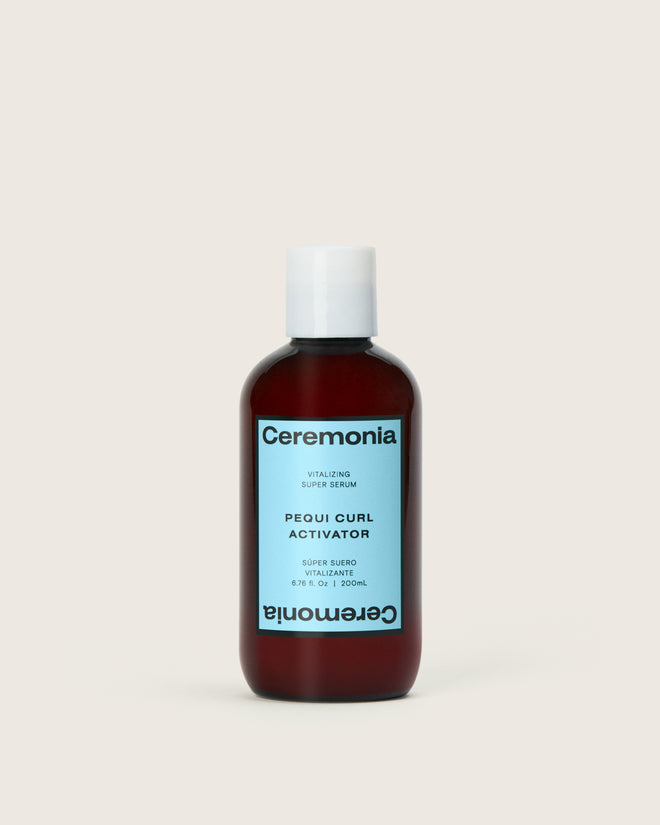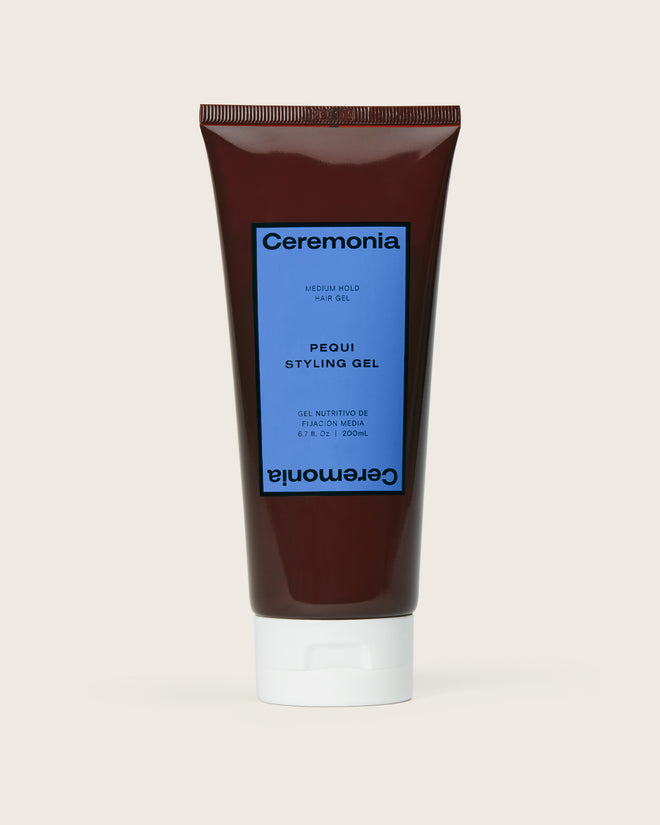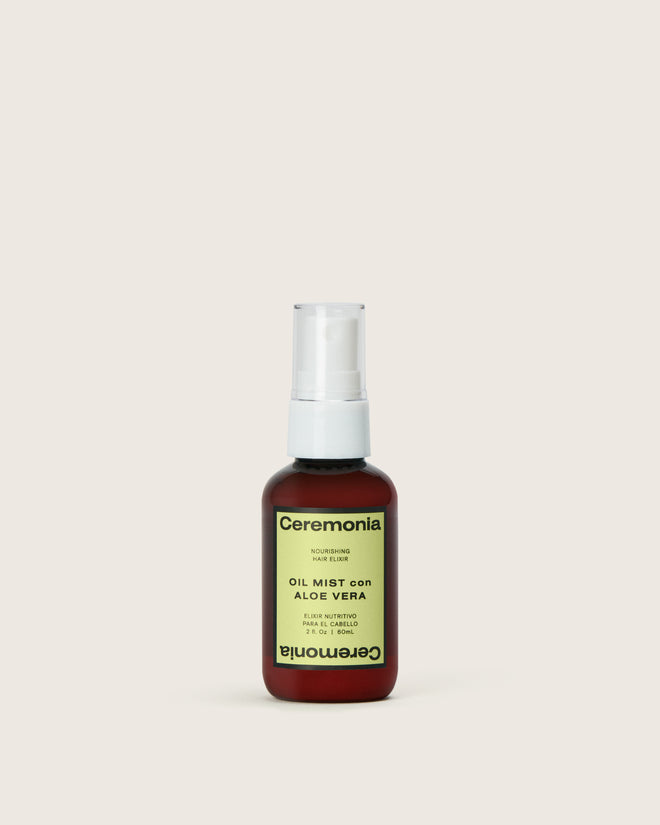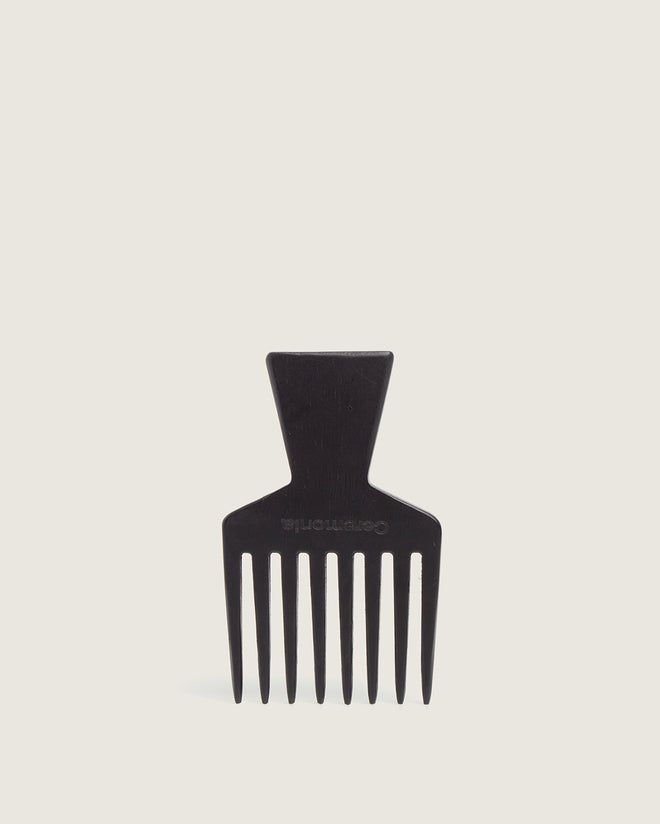Frizzy hair can feel like a constant battle. One moment, your hair is smooth, and the next, it transforms into a halo of fuzz. Many of us have tried countless anti-frizz hair products with mixed results. Could the solution be as simple as a fruit-infused conditioner? In this comprehensive guide, we explore how a guava conditioner for frizz control can help tame unruly locks. We’ll dive into the science of frizz, the importance of moisture, and why guava is emerging as a powerhouse ingredient for hair care.

Understanding Frizzy Hair: Causes and Challenges
Frizz is a sign that your hair is crying out for help. To tackle frizz effectively, it helps to understand what’s happening on a hair’s structural level. Frizzy hair occurs when the outer layer of the hair (the cuticle) is raised, which lets the hair’s internal moisture escape and allows humid air to penetrate the shaft. Your hair loses moisture and then puffs up as it soaks up moisture from the environment. Major culprits behind this phenomenon include dry hair, humid weather, heat damage, chemical treatments, and even over-washing. Each of these factors can either lift or damage the cuticle, allowing moisture to escape or enter at the wrong times.
Dryness is often at the root of frizz. When hair doesn’t have enough hydration, it becomes thirsty and will pull water from the air, causing strands to swell and kink. Humidity is a frizz accelerator. Think of those bad hair days on a muggy summer morning. Damage from heat styling or chemical processes also roughs up the cuticle, as does washing with harsh shampoos that strip the natural oils. Even your hair’s natural texture plays a role: coarser, curlier hair types tend to be drier and more prone to frizz, whereas straight hair might frizz mainly from breakage or humidity. The challenge with frizz is that it can stem from multiple causes and affect any hair type. That’s why effective frizz management is holistic. The good news is that by identifying what triggers your frizz, be it how to reduce frizz in high humidity or preventing heat-induced fluff, you can tailor a plan to combat it. And central to almost every anti-frizz game plan is proper hydration and cuticle care.
The Importance of Moisture: How Conditioners Tame Frizz
A well-hydrated strand of hair is far less likely to frizz because its cuticle lies flat, sealing in water and keeping excess humidity out. This is why a good moisturizing hair conditioner is often the first line of defense against frizz. Conditioners work by coating the hair shaft with nourishing ingredients that replenish lost moisture and create a smooth barrier. By providing much-needed hydration and sealing in that moisture, conditioners significantly reduce the likelihood of frizz.
How exactly does conditioner achieve this? Most conditioners contain conditioning agents and oils that bind to the hair’s surface, filling in rough patches and forming a thin protective film. This helps in a few ways. It prevents internal moisture from escaping the hair during the day, so your strands stay supple instead of drying out. Second, it keeps external moisture from penetrating and swelling the hair shaft. And third, it adds slip to the hair, which helps strands lie flat and not tangle up with each other. The result is hair that’s more aligned and less prone to that poofy, frazzled look.
When battling frizz, look for rich, nourishing formulas with ingredients known for hydration and smoothing. Natural oils (such as coconut, argan, or jojoba), shea or cocoa butter, aloe vera, and glycerin are all beneficial in a conditioner with guava extract or other botanical ingredients. These components act as emollients and humectants, softening the hair and attracting water into it. Some conditioners also include proteins or amino acids to strengthen the hair, since damaged, brittle strands tend to frizz easily. It’s worth noting that while silicones are common in anti-frizz conditioners for their quick smoothing effect, not everyone prefers them due to potential build-up. If you lean toward a clean beauty approach, numerous silicone-free options are available that still deliver deep hydration without weighing hair down. The best conditioner for frizzy hair will be one that infuses moisture and locks it in, all while respecting your hair’s natural structure.
Why Guava? The Superfruit Solution for Hair Health
Guava is gaining a reputation as a superfruit for hair care, particularly for strengthening hair and promoting growth. Using guava for hair growth and health isn’t just a trendy idea – there’s real science behind it. Guava fruits and leaves are packed with vitamins, antioxidants, and other nutrients that benefit both the hair shaft and the scalp.
One of guava’s standout nutrients is Vitamin C. Guavas have a remarkably high Vitamin C content, even more than oranges. Vitamin C is crucial for producing collagen, a protein that helps build hair. By boosting collagen production at the hair roots, guava can support healthier, stronger growth. Guava also contains B vitamins (like B3 and B5), which improve circulation in the scalp and strengthen hair follicles. Additionally, the fruit and its leaves are rich in antioxidants such as carotenoids and flavonoids. Antioxidants help protect hair follicles from damage caused by free radicals. It means guava may help prevent hair damage and breakage, keeping your mane more resilient.
What about guava’s effect on thinning or shedding hair? The leaves possess antimicrobial and anti-inflammatory properties, which can help combat dandruff or minor scalp irritation that may impede optimal hair growth. A healthy scalp is the foundation for growing strong, thick hair. One hair clinic notes that guava’s antioxidants and anti-inflammatory agents nourish the scalp and follicles, creating conditions that may promote hair growth. Guava leaf extract’s high Vitamin C content nourishes the roots and helps make them stronger, while its B vitamins can act as natural hair thickening supporters.
Guava Conditioner for Frizz Control: How It Works
Harnessing guava’s benefits in a targeted product, like a guava conditioner for hair, is an effective way to tame frizz and boost your hair’s strength simultaneously. A specialized guava-infused conditioner effectively combines the power of deep hydration with the protective and nourishing qualities of guava extract. The conditioner’s moisturizing base immediately goes to work smoothing the cuticle and replenishing moisture, as any good conditioner should. Additionally, the guava extract delivers these vitamins and antioxidants directly to your hair and scalp.
It’s worth noting that not many products in the market feature guava. One example is Ceremonia’s Guava Leave-In Conditioner, an award-winning product that hydrates, fights frizz, and even provides UV heat protection with the help of guava. Using the best moisturizing shampoo and conditioner after washing can extend the frizz-fighting protection throughout the day. This type of product not only provides an immediate smoothing effect but also continues to protect your hair from humidity and dryness as you go about your daily routine. With guava in your haircare toolkit, frizz doesn’t stand much of a chance!

Choosing the Best Conditioner for Dry, Frizzy Hair
The best conditioner for frizzy hair will have a combination of deeply nourishing ingredients and gentle, hair-friendly formulations. When in doubt, check out reviews or get a recommendation from a stylist. Sometimes, the difference between a good conditioner and the best conditioner for dry frizzy hair is how well it works for your specific hair type and local climate. If you live in a very humid area, you may need a heavier-duty smoothing conditioner. An anti-frizz conditioner should deeply hydrate the hair without overwhelming it, smooth the cuticle, and ideally strengthen the hair. Once you find a conditioner that ticks these boxes, stick with it and use it regularly. Consistency will help maximize the benefits.
Beyond Conditioner: A Complete Anti-Frizz Hair Routine
Taming frizz effectively often requires a holistic approach. While a great conditioner lays the foundation, combining it with other frizzy hair products will tackle the problem from all angles. Let’s outline a comprehensive anti-frizz regimen:
-
Start in the Shower: The routine begins with your shampoo. Using a gentle, sulfate-free shampoo is crucial, as harsh sulfates can strip natural oils and dry out your hair, setting the stage for frizz. Opt for a dedicated anti-frizz shampoo or any moisturizing, sulfate-free formula that cleans without over-drying. You want your hair clean, but not “squeaky” – that squeak often means all the healthy oils have been stripped away. Follow up with your conditioner, focusing on mid-lengths to ends. On days your hair feels extra dry, consider leaving the conditioner on a few extra minutes for deeper penetration.
-
Deep Conditioning and Masks: Once a week or every other week, swap out your regular conditioner for a deep-conditioning mask. A hair mask designed for frizz or damage can deliver concentrated moisture and repair agents. This helps recharge your hair’s hydration levels and smoothness. Think of it as an intensive treatment that keeps your hair in top shape, minimizing day-to-day frizz. If you’re using a guava-infused mask or a similar natural remedy, this is the time to apply it. A deep conditioner or mask that you leave on for 10-20 minutes can make a world of difference in manageability.
-
Leave-In Products and Serums: After rinsing out your conditioner or mask, it’s often beneficial to apply a leave-in conditioner, cream, or serum on damp hair. These are lightweight products that you do not rinse out. A leave-in acts as an extra layer of moisture and protection. Many leave-in sprays or creams contain heat protectants and frizz-fighters. For instance, a guava leave-in conditioner could continue to deliver guava’s benefits and guard your hair all day. Serums, especially those containing silicones or oils, are fantastic for sealing the cuticle. By smoothing a few drops of serum through your hair, you create a barrier against humidity. This step is crucial for achieving long-lasting frizz control. The best hair products for frizzy hair include a leave-in product to lock in the moisture from your conditioner.
-
Heat Protection: If you plan to blow-dry or use any hot styling tools, never skip heat protectant. Heat styling can easily rob your hair of moisture and damage the cuticle, undoing all the good you’ve done in your wash routine. A heat protectant spray or cream will form a protective layer that minimizes damage from high temperatures.
-
Styling Wisely: How you style your hair can affect frizz. If straightening or curling, use tools on medium settings instead of the highest heat and always work on fully dried hair. For those with curls or waves, using a diffuser attachment on the blow dryer can help dry hair gently and maintain the natural curl pattern without causing frizz.
-
Ongoing Care and Maintenance: Outside of wash days, a few habits will support your anti-frizz mission. For example, try not to over-brush or touch your hair too much when it’s dry – this can lift the cuticle and create static or frizz. If you need to detangle, do it on wet, conditioned hair with a wide-tooth comb. Also, consider your environment: in arid indoor air, a humidifier can prevent your hair from drying out. And in very humid climates, keeping hair up in protective styles or braids can sometimes ward off frizz.
You can easily buy anti-frizz shampoos online and have access to a wide range of products that suit your needs. Shopping online for the best anti-frizz products enables you to read reviews and discover specialized items that may not be available in local stores. Be sure to purchase from reputable retailers or directly from the brand's website to guarantee authenticity.
How to Reduce Frizz: Tips and Everyday Habits
Knowing how to reduce frizz through simple habits will complement your product regimen and keep your hair in line. Consider incorporating these tips into your routine:
-
Dry Hair Gently: Rubbing wet hair vigorously with a towel is a common mistake that roughs up the cuticle and leads to frizz. Instead, gently blot or squeeze out excess water. Better yet, use a microfiber towel or even a soft cotton T-shirt to dry your hair. These materials create less friction than a standard terrycloth towel. Gentle handling when hair is wet will prevent a lot of frizz and breakage before it starts.
-
Cool Rinses: When washing and conditioning, try rinsing your hair with cool (or lukewarm) water as a final step. Cool water helps the cuticle scales lie flat, whereas hot water can leave the cuticle more open.
-
Watch the Weather: If you know it’s going to be a high-humidity day, consider wearing your hair in a style that keeps it more contained. A braid, bun, or ponytail can be a frizz-saver when the air is muggy. You can also apply a tiny dab of oil or serum to finished hair on those days, focusing on the surface of your hair, to act as a humidity blocker. In very dry weather, a lightweight leave-in mist can add moisture, so your hair doesn’t have to draw it from the air and experience static.
-
Sleep on Satin: One of the simplest changes to reduce frizz is switching your pillowcase to satin or silk. Traditional cotton pillowcases can tug at your hair and absorb its moisture overnight, leading to a frizzy bedhead in the morning. Satin or silk, on the other hand, allows hair to glide smoothly and helps retain moisture. Many people notice far fewer tangles and frizz when they make this swap. If a new pillowcase isn’t an option, you can wrap your hair in a silk scarf or bonnet before sleeping. It’s a small investment for a big payoff in hair smoothness.
-
Regular Trims: Split ends and frazzled tips can travel up the hair shaft and give an overall frizzy, unhealthy look to your hair. By trimming your ends regularly, you prevent splits from worsening. Your hair will appear neater and smoother. It might seem counterintuitive to cut hair to combat frizz, but maintaining healthy ends is key to an overall polished look.
-
Don’t Overdo the Washes: Overwashing hair can cause dryness, which obviously leads to more frizz. If your hair can handle it, try washing only 2-3 times a week instead of daily. On off days, you can rinse with water and conditioner or use a dry shampoo on the roots if needed.
As both your hair’s condition improves and you master these habits, frizz will go from being an uncontrollable adversary to a manageable occasional annoyance.

In embracing this comprehensive approach, you’re not just taming frizz; you’re improving your hair’s overall health and appearance. When your hair is well-moisturized, strengthened from nutrients, and handled kindly, it tends to behave and look its best. You might even find yourself enjoying your natural texture more, as curls become defined rather than fuzzy, or straight hair stays sleek rather than straggly. So go ahead and give guava a try in your hair care routine, invest in high-quality conditioners and serums, and adopt those frizz-reducing habits. With patience and consistency, you’ll be able to say goodbye to the persistent halo of frizz and hello to smoother, softer, more radiant hair days ahead.
Sources
-
Times of India – 5 reasons to wash hair with boiled guava leaf water (slideshow on guava leaves benefits) timesofindia.indiatimes.com
-
Hair.com by L’Oréal – How To Get Rid Of Frizzy Hair: 20 Tips Stylists Swear By hair.com




